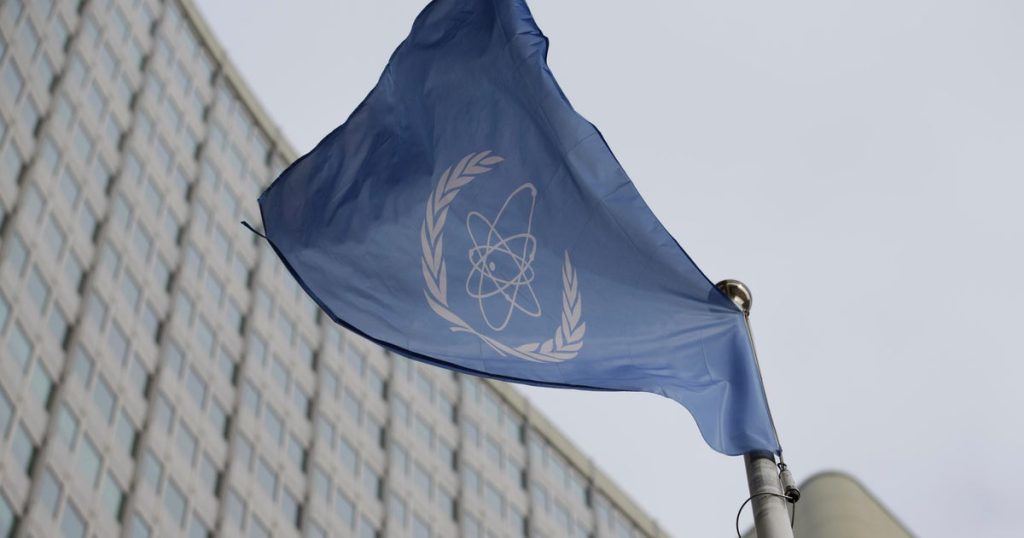Iran has significantly increased its stockpile of uranium enriched to near-weapons-grade levels, according to a recent United Nations nuclear watchdog report. This development comes at a critical juncture as negotiations between Tehran and Washington are evolving around a potential nuclear deal. The International Atomic Energy Agency (IAEA) has urgently called on Iran to alter its course and comply with the ongoing investigations into its nuclear program.
| Article Subheadings |
|---|
| 1) Increase in Uranium Stockpile |
| 2) International Concerns and Warnings |
| 3) Iran’s Nuclear Allegations |
| 4) Potential Global Reactions |
| 5) Future of U.S.-Iran Relations |
Increase in Uranium Stockpile
The IAEA’s latest report indicates a drastic escalation in Iran’s stockpile of uranium enriched to 60%. As of May 17, this stockpile has reached 900.8 pounds, marking an increase of nearly 295 pounds since the last report published in February. At this enrichment level, the uranium is only a technical step away from the weapons-grade threshold of 90%. This significant surge in enrichment poses alarming questions regarding Iran’s nuclear intentions and capabilities.
While the specifics of the increased stockpile remain under scrutiny, officials suspect that 92.5 pounds of such enriched uranium could theoretically be sufficient to create one atomic bomb if further enriched. The implications of this development extend beyond Iran, affecting geopolitical dynamics across the Middle East and beyond. The IAEA is stressing the need for urgent dialogue to clarify Iran’s intentions and to ensure that its nuclear program remains solely within the bounds of peaceful activities.
International Concerns and Warnings
The assessment from the IAEA has not gone unnoticed among international actors. The organization has raised serious concerns, declaring that Iran is now “the only non-nuclear-weapon state to produce such material.” The report serves as a clarion call for the international community to take this issue very seriously, given the potential threat to regional and global security.
Additionally, Iranian officials have not yet provided any comments in response to the IAEA’s findings, leaving the world in a state of suspense. Meanwhile, Rafael Mariano Grossi, the director-general of the IAEA, has publicly urged Iran to cooperate fully with ongoing investigations into uranium traces found at various sites. This insistence highlights the need for transparency if Tehran’s nuclear activities are to be deemed benign.
Iran’s Nuclear Allegations
Historically, Iran has insisted that its nuclear program serves peaceful purposes. However, skepticism surrounds this claim, especially as high-ranking officials suggest the possibility of pursuing an atomic bomb. U.S. intelligence agencies have reported that, although Iran has not initiated a formal weapons program, it has engaged in activities that could enable it to develop a nuclear device if it chooses to do so.
In the context of international relations, Israel has been vocal about its concerns regarding Iran’s nuclear ambitions. Prime Minister Benjamin Netanyahu stated that the latest IAEA report symbolizes Iran’s determination to advance its nuclear weapons program. Israel has consistently maintained that the purpose of Iran’s enrichment activities lacks any civilian justification, thus calling upon the global community to intervene.
Potential Global Reactions
The IAEA’s comprehensive report provides a basis for possible escalatory measures by European nations. These countries may consider re-instating sanctions that were previously lifted under the terms of the original 2015 nuclear deal, especially as October approaches—the formal expiration date for that agreement. Such actions could heighten tensions between Iran and the West, leading to increased scrutiny of Iran’s nuclear capabilities.
Timing plays a crucial role in these developments. Recently, senior Iranian officials dismissed any speculation that a nuclear deal with the United States may be imminent. They stress that any agreement must involve a full lifting of sanctions and the continuation of Iran’s nuclear program. This statement coincides with comments made by the former U.S. President, suggesting a preference for negotiation over military confrontation.
Future of U.S.-Iran Relations
The trajectory of U.S.-Iran relations hinges on the ongoing negotiations surrounding the nuclear deal. Former President Donald Trump recently mentioned that he has urged Israel to postpone any military action against Iran to allow for further diplomatic efforts. He remains optimistic about the possibility of concluding a new agreement. However, the complex nature of these discussions means that the path ahead is fraught with challenges.
With both sides holding firm on their respective positions, the potential for a peaceful resolution remains uncertain. Iran’s nuclear advancements juxtaposed against its assurances of peaceful intent continue to fuel skepticism in the international community, necessitating ongoing vigilance and dialogue.
| No. | Key Points |
|---|---|
| 1 | Iran’s stockpile of near-weapons-grade uranium has significantly increased. |
| 2 | The IAEA has raised serious concerns about Iran’s nuclear activities. |
| 3 | Iran maintains that its nuclear program is for peaceful purposes. |
| 4 | Israel has expressed clear concerns regarding Iran’s nuclear intentions. |
| 5 | The outcome of U.S.-Iran negotiations remains uncertain. |
Summary
The recent IAEA report highlights a significant escalation in Iran’s uranium enrichment activities, stoking fears of potential nuclear capabilities. This situation not only poses a direct challenge to regional stability but also complicates ongoing diplomatic efforts between Tehran and Washington. As international actors closely monitor the developments, the emphasis on dialogue and transparency becomes imperative for mitigating risks and ensuring a peaceful resolution.
Frequently Asked Questions
Question: What has prompted international concern regarding Iran’s nuclear program?
Concerns have arisen due to Iran’s significant increase in its stockpile of uranium enriched to near-weapons-grade levels, which raises questions about its nuclear intentions and capabilities.
Question: How much enriched uranium does Iran currently possess?
As of May 17, Iran has amassed approximately 900.8 pounds of uranium enriched to 60%, which is close to the weapons-grade threshold of 90%.
Question: What actions might European nations take in response to Iran’s actions?
European nations may consider re-instating sanctions against Iran that were lifted under the 2015 nuclear deal, especially as the expiration date for that agreement approaches in October.
